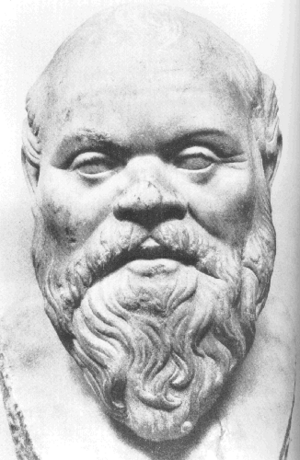Inference facts for kids
Inference is a way of figuring out new information based on things you already know and some rules. It's how we make smart guesses or draw conclusions.
In logic, there are three main ways we do this:
Contents
Deduction: Certain Conclusions
Deduction is when you start with a general rule or fact that you know is true, and then you use it to figure out something specific. If the rule is true, and your specific case fits the rule, then your conclusion must also be true.
Think of it like this:
- Rule: All birds have feathers.
- Fact: A robin is a bird.
- Conclusion: Therefore, a robin has feathers.
This is a very strong way to reason because if your starting points are correct, your answer will definitely be correct. A famous example is from ancient Greece: "All men are mortal. Socrates is a man. Therefore, Socrates is mortal."
Induction: Finding General Rules
Induction is the opposite of deduction. Instead of starting with a general rule, you look at many specific examples or observations. From these examples, you try to figure out a general rule that seems to fit them all.
For example:
- Observation 1: When I press the brake in my car, it slows down.
- Observation 2: When my friend presses the brake in their car, it slows down.
- Observation 3: When a race car driver presses the brake, the car slows down.
- General Rule (Induction): Therefore, using the brake will probably slow down any car.
With induction, your conclusion isn't always 100% certain, even if your observations are true. It's about finding the most likely general rule based on what you've seen.
Abduction: Best Guesses
Abduction is about finding the most likely explanation for something you observe. You start with an observation, and then you try to figure out what probably caused it. It's like being a detective trying to solve a mystery.
Here’s an example:
- Observation: The car is slowing down.
- Known Rule: Using the brake in a car will slow down the car.
- Most Likely Explanation (Abduction): Probably, the brake was used.
Abduction helps us make the best guess or the most reasonable explanation when we don't have all the facts. It's often used in daily life, science, and even when doctors diagnose illnesses.
Inference in Other Areas
Inference isn't just for logic! We use it in many other parts of life and study:
- In language: When someone says something, we often infer (figure out) what they really mean, even if they don't say it directly. It's like reading between the lines.
- In statistics: Statistical inference means using information from a small group of data (a sample) to make smart conclusions or predictions about a much larger group. For example, polling a few thousand people to guess how millions will vote.
See also
 In Spanish: Inferencia para niños
In Spanish: Inferencia para niños
 | Audre Lorde |
 | John Berry Meachum |
 | Ferdinand Lee Barnett |


